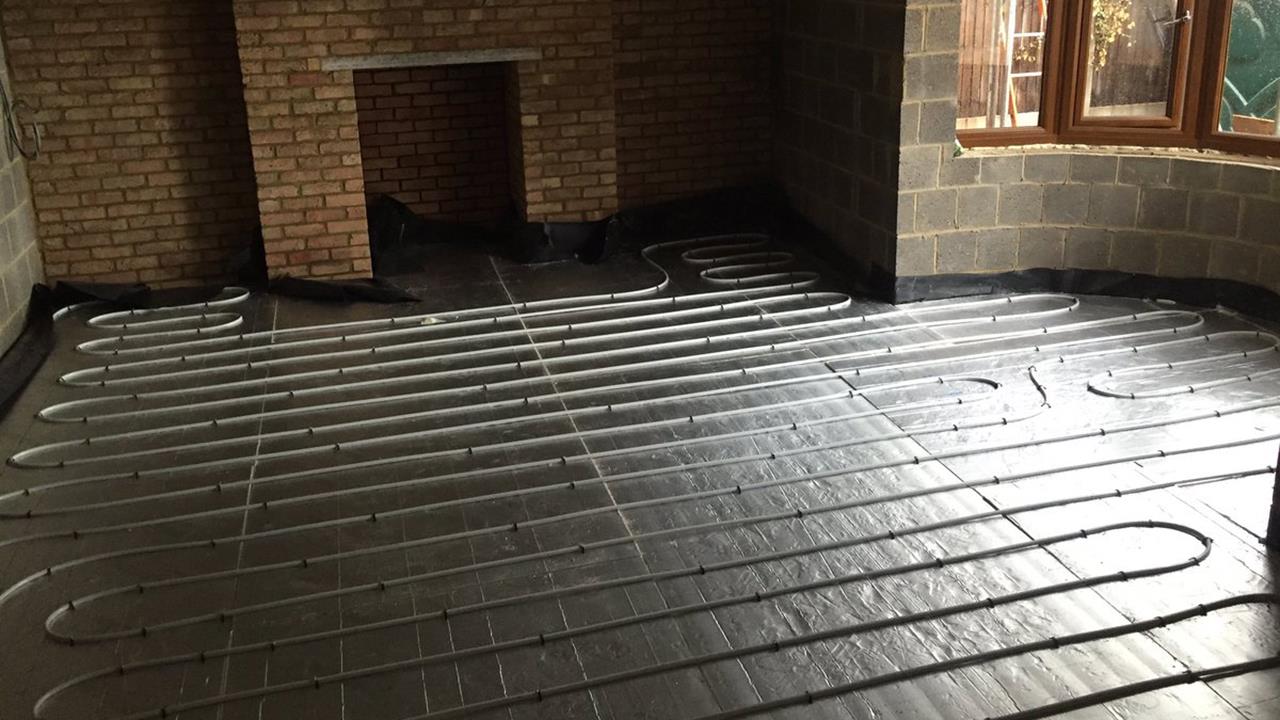

Ambitions to improve the sustainability of homes have triggered an evolution in home heating – and underfloor heating (UFH) is leading the way to a more comfortable, energy efficient future.
Despite being hidden beneath the floor, UFH unlocks a host of benefits that make households more sustainable, comfortable and even cheaper to run. The versatility of systems also means UFH can be paired with various heat sources (including heat pumps and boilers), making it just as suitable for newbuilds as it is for refurbishment projects.
Operating at much lower temperatures than traditional radiator systems, UFH delivers consistent warmth while reducing demand on a property’s heat source. This lower temperature also makes for easier compliance with this year’s changes to Part L, requiring a maximum flow temperature of 55°C.
Let’s look how UFH is shaping a more sustainable future.
Retrofitting sustainability
While underfloor heating is straightforward to install in newbuild properties where plumbing systems are being created for the first time, its benefits can also be leveraged on retrofit projects – without the need to dig up the floor.
Designed to keep floor height to a minimum while maintaining adequate heat output, JG LowFit is a UFH panelling solution, which ranges from 16-20mm in thickness and supports multiple pipe layouts to strengthen efficiency. Designed specifically for installation over existing flooring, its foil, castellated, and mesh panels can be laid quickly and easily, accommodating 12-15mm pipe.
Staying in control of sustainability
One of the key advantages of UFH systems that further highlights their energy efficiency lies in the ability to integrate smart controls. The inclusion of smart technologies, such as advanced thermostats, plays a pivotal role in modern homes, allowing residents to maintain comfortable temperatures effortlessly and effectively.
These controls offer the ability to programme desired temperatures in specific rooms at designated times throughout the day. With the convenience of smartphone apps or direct thermostat control, users can actively manage their heating to reduce energy consumption and operating costs, without compromising on comfort.
A sustainable solution
Due to its ability to benefit homes from an energy efficiency perspective, UFH will continue to play a primary role in the future of home heating. Its versatility in newbuild and retrofit projects is already enabling homeowners to realise energy savings and improve sustainability. Additionally, these systems will support the UK to achieve the ambitions of the Future Homes Standard which concern the decarbonisation of the country’s current and future housing stock.
Explore RWC’s JG Underfloor systems: jgunderfloor.com
If you'd like to keep up-to-date with the latest developments in the heating and plumbing industry, why not subscribe to our weekly newsletters? Just click the button below and you can ensure all the latest industry news and new product information lands in your inbox every week.